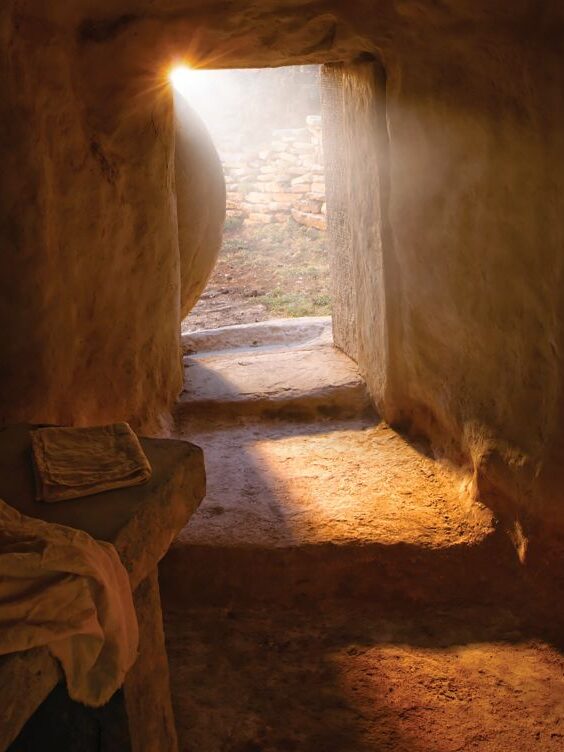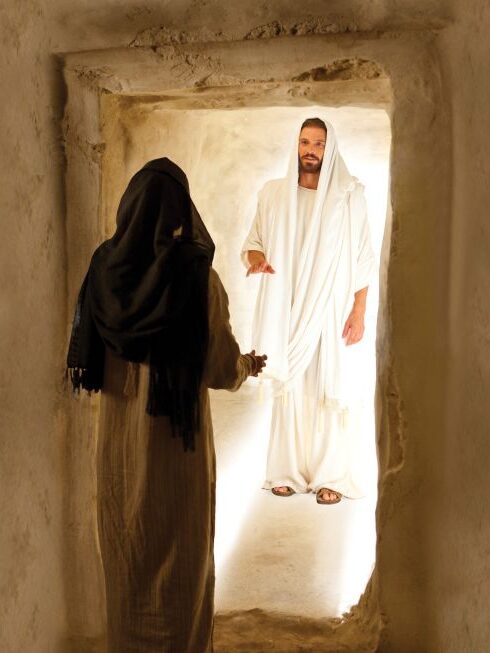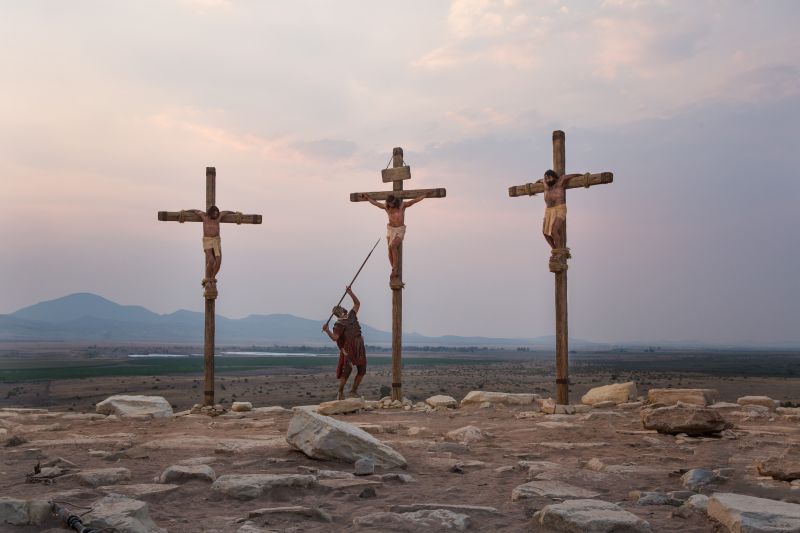Inevitably, this post is thoughts on Easter, the greatest of our Christian festivals and a time for reflection. It’s a story of contrasts: an infinite agony beyond human endurance began on Thursday in Gethsemane, continued through extended, excruciating torture to a dreadful death on Friday, then life and joy renewed in the glorious resurrection on Sunday. In my mind the colour of Friday is dark blues or black; Sunday is glorious, shining gold. These, the the greatest events in the history of the world, are unnoticed and unconsidered by most of the world’s inhabitants, either at the time they occurred or in our own day.
Among my reflections during Easter weekend, one thing stands out: the contrast between stories reported in our news media on the one hand, and events in Jerusalem two thousand years ago on the other. They are in astronomically different dimensions. This Easter, the shouting of the chattering classes seemed so empty, trivial and inconsequential compared with eternal realities of the Easter story. The chanting of the crowd “crucify him”, whipped up by corrupt Jewish leaders was in similar wilful ignorance. No doubt the Sanhedrim, the elite politicians of their day, manipulated circumstances for their wicked ends, but even so, how could any sane person go along with it? They saw the mighty miracles, they heard his teachings, they witnessed his mastery in debate with the Pharisees, they saw his goodness. How could they stand by and do nothing, or even demand Barabbas in place of the Saviour of the World? Well, we weren’t there. We don’t know for sure how the Triumphal Entry turned into a death chant in just a week. Perhaps the hearing before Pilate was a rent-a-crowd mob. Perhaps behind each disciple there was a threatening thug with a big club. We just don’t know. But even today we see the same rejection, or at least, casual indifference. A quick scan of the headlines, then turn to the important bit: the sports pages. Thankfully there are still some who pick up a Bible as well.
Jesus changed the nature of existence during Easter. Let’s shout it from the rooftops: JESUS CHANGED THE NATURE OF EXISTENCE DURING EASTER.
This isn’t just a nice academic point to discuss over dinner. I jump up and down with frustration at the profoundly sad reality that so many refuse to even think about it. If true, this is the most important event of all time, of infinite, unparalleled importance. Surely, for any rational person, Easter is a topic deserving serious consideration: more than superficial thought over the morning cornflakes. It demands deep, serious, sustained study, because if true, the consequences for our lives are life-changing.
Even his closest disciples found it a struggle though. Their response when when the women declared he was risen and gloriously alive is surprising.
Luke 24:
10 It was Mary Magdalene, and Joanna, and Mary the mother of James, and other women that were with them, which told these things unto the apostles.
11 And their words seemed to them as idle tales, and they believed them not.
12 Then arose Peter, and ran unto the sepulchre; and stooping down, he beheld the linen clothes laid by themselves, and departed, wondering in himself at that which was come to pass.
Or maybe not so surprising. They witnessed his tortured, lifeless body on the cross. They saw him sealed in the tomb. How could Jesus possibly be alive? Their lives were emotionally shredded. In a state of bewildered shock they gathered together for comfort, uncertain what to do, where to go. He taught them for three years and explained plainly what would happen to him, but the brutal reality was shocking, beyond comprehension. The Sanhedrin were fully aware of his promise to rise from the dead, and put guards on the tomb. It wasn’t a secret, unknown teaching, but if the disciples recalled it at all, the literal possibility was drowned in a sea of sorrow. John tells us “For as yet they knew not the scripture, that he must arise again from the dead” (John 10:9).
But then things began to happen. The surprise betrayal and arrest in Gethsemane had led to his crucifixion, death and burial in just a few hours. The speed of events must have been stunning. But so were the events that changed defeat into victory, misery into joy. His appearance to faithful women came first, then a private appearance to Peter (Luke 24:34). Word got out, whispered rumours changed to confident, unstoppable testimony, as first his closest disciples, then eventually many hundreds saw the resurrected Saviour.

What a story! How can anyone not be interested? And it’s true! A challenge for many is that it can’t be proved to be true, in a court of law, with first-hand witnesses and forensic evidence. No—that option was never going to be left for us in our time. After all, the Sanhedrin knew the true story from the guards at the tomb, yet still turned their backs and refused to accept reality. Goodness knows what convoluted sophistry they came up with to justify their actions. The veracity of this story is only revealed to those who open their hearts and minds in a sincere desire to know the truth. The most powerful witness is the Holy Spirit, and we can receive his testimony so easily, just by asking God: “is it true? is Jesus your son? did he die on the cross for me? was he raised to life on the third day?” For me, the answer is a thunderous YES, and it will be for all who ask with a genuine desire for an answer. The Easter story is true and because of it, death is not the end. Sooner or later all mankind will know this, but for each of us, better sooner than later!





Nice post. I learn something totally new and challenging on blogs I stumbleupon on a daily basis. It will always be useful to read articles from other authors and practice a little something from their sites.